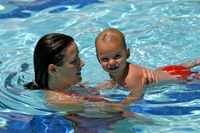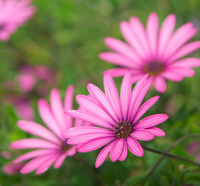
Plan early for a happy holiday
Earlier this year one of our newsletter stories that received a lot of interest was a bulletin about children’s illnesses on the rise in South East Asia.
Ahead of the summer holidays, we have therefore prepared a comprehensive feature about travelling with children. The feature includes information from our family doctors Dr Susan Jamieson and Dr Lily Wong, as well as Naturopath Jennifer Walker and the practice’s new homeopath, Charlotte Douglas — covering treatments as well as preventive vaccinations, medications and measures.
Prevention is better than cure
Travel with children can be exciting and provide wonderful memories for years to come. However living in Asia we tend to become blasé about the risk of infectious disease when travelling even though, for example, South East Asia is the most dangerous place in the world for cerebral malaria (the illness affects the brain and tends to be drug resistant). We mustn’t make the mistake of falling into a sense of false security just because we’ve lived here for some time and all our friends travel to those places without sickness. Patients often say: “But I’ve been before and never got malaria!” Remember, not all statistics are lies!
But it’s not only travel that can be a threat. As a doctor practising for many years in Hong Kong, I’ve seen cases of diseases such as typhoid actually being picked up in Hong Kong — not only in exotic holiday destinations such as Thailand or Bali!
Parents should make sure they are aware of the common health risk at their destination (as well as in Hong Kong), and because vaccinations take time to become effective, plan early for their holidays. One month is advisable.
Illnesses where vaccination is recommended for prevention
Some of the most common vaccinations required for travel include:
Hepatitis A
According to the World Health Organsation (WHO), there are estimated to be 1.5 million new cases of illness due to the viral Hepatitis A infection of the liver. The virus is picked up from contaminated food or water and is common in all of Asia.
As well as being debilitating and usually requiring a week or two off work, the infection has a 1% death rate, a fact that patients often ignore.
Vaccination is recommended for all children, one year and older. Two separate doses are given at least six months apart although protection against Hepatitis A starts 2-4 weeks after the initial vaccination.
Typhoid Vaccine
This is an infection which can be picked up from contaminated food or water. The bacteria can cause fever, diarrhoea, stomach pain and rash. Adults should be routinely vaccinated whilst living in Asia, and the vaccine can be given to children two years and over who are travelling to high-risk areas for long periods of time.
Yellow Fever
This is a serious infection which affects the liver and causes severe bleeding and is transmitted to people from infected mosquitoes.
There is no specicific treatment for Yellow fever and vaccination is the single most important measure for prevention of the disease. .Proof of vaccination is required for entry into many countries.The vaccine is given as a single shot to anyone over nine months of age, and for those at a continued risk, may be given as a booster dose every 10 years. The protective effect occurs within one week in 95% of people vaccinated.
Children who are planning to study abroad may also require a review of their immunization record as different countries have different immunization programmes,
Preventive medication for malaria
It is estimated that every year there are four million new cases and over one million deaths. Some of the worst types of malaria are found in South East Asia, especially the ‘Golden Triangle’ area.
Preventive medication is essential when traveling to some countries and for these measures to be effective, treatment must be started weeks before the holiday. This also allows time to assess side effects so that changes can be made if necessary.
Essentially the four main types of antimalaria tablets/liquid available include the following
• Choroquine
• Mefloquine
• Atavaqone/proguanil
• Doxycycline
The right choice depends on several factors including age/country of travel and the potential side effects that may be experienced. Some medication may not be suitable for certain children because of existing medical conditions
It is important to consult with a doctor before travel to make the best medication decisions, receive practical advice as to how to avoid malaria and what symptoms to look out for as malaria can occur even when you observe protective measures and use medication as prescribed
Treating common ailments
It may not be easy to access common medications or receive health advice abroad, especially in remote areas or on public holidays and festivals. Each country also has its own regulations on medicines, and these can be of a varying standard. It is therefore advisable to pack some essential common medications to take with you. These include:
• Paracetamol
• Ibuprofen
• Rehydration sachets
• Travel sickness tablets/liquid
• First aid kit-plasters. Antiseptic creams etc
We also suggest taking a copy of repeat prescriptions if your child is on any medication, and should you require medical help. You can also play it safe and get enough from your doctor before you leave.
Sunburn and Prickly Heat
To prevent both complaints, keep children in the shade dress them in loose 100% cotton clothing. Apply high factor sun cream liberally.
Taking an analgesic, for example Paracetamol, as well as bathing the affected area with calamine lotion or cold water, or using a cold compress can be effective. If the area is blistered keep it dry and cover any burn areas since they can easily become infected.
If sunburn is extensive, the skin loses its ability to control the body’s temperature and children are at risk of becoming dehydrated. Medical advice should be sought.
Kids on a Plane!
It’s hard enough getting yourself comfortable on a flight but for children the new environment and discomforts can really prove to be too much.
Ear Pain – Changes in altitude during take off and landing can cause ear pain due to it affecting ear equalization. This can cause distress to children. To avoid this:
- Breast or bottle feed
- Give the children chewy sweets
If there is an underlying ear infection, the pain can become severe and in some situations, it would be advisable not to fly until the infection has cleared. Since ear infections are common amongst children, and especially in the summer when children swim more often, it would also be advisable to buy your travel insurance early to cover flight alterations and accommodation costs.
Sedatives and sleeping
Flying with children on long-haul flights can be very stressful for some parents and we often receive requests for sedatives. Antihistamines are commonly prescribed which can induce drowsiness and sleep. However, they can also have the opposite effect in some children, and induce hyperactive behavior.
Other methods that can be considered include homeopathic alternatives and essential oils such as lavender and chamomile. Please see the linked article.
Dehydration
Dehydration can be a real problem for children because of the air-conditioning and dry atmosphere. Always keep a bottle or straw cup topped up at all times and encourage children and infants to take regular drinks. Keep it topped up when ever you have a reliable source of water. Naturopath Jennifer Walker suggests taking moist and refreshing foods such as grapes, berries, cherry tomatoes, carrot sticks, raisins and red capsicum strips which can be enjoyed during the flight and are the envy of other passengers. Jennifer also suggests adding drops of echinacea or olive leaf extract to water or juices to help ward off any infections that may be doing the rounds on the aircraft.
___________________________________________________________________

Homeopathic remedies are fast acting and safe
Homeopathic Solutions

Homeopathic remedies are fast acting and safe
Homeopathy can be very useful when travelling with children, especially as the pills are easy to administer and are 100% natural and safe to take. The remedies can be very fast acting which can be a great comfort when you have a screaming infant on your hands.
The most common remedy recommended when abroad is Pulsatilla, especially if your child is tearful, very clingy and restless. This remedy is effective for a whole host of ailments from fevers to earaches. However, if your child has a fever and is especially hot and red, then Belladonna can help aid the fever to come to its natural conclusion.
For those who suffer from travel sickness then Arg-Nit can be very useful where there is nausea and vomiting with nervous agitation, or Cocculus if there is nausea and retching with salivation and dizziness.
For a bout of food poisoning, taking AsAlb works well for most cases, whatever the associated bug or bacteria. For those going on long plane journeys then a combination of Arnica, Cocculus and Gelsenium are good to take to counter-act the effects of jet lag. To further limit the symptoms please ensure your child drinks plenty of water throughout the flight. A child who suffers from painful popping of ears on take-off should take some Silica to relieve the pressure.
Charlotte Douglas is a homeopath registered with the Society of Homeopaths (UK) She has many years experience of treating babies and children as well as having a particular interest in fertility, pregnancy and labour.
___________________________________________________________________
Homeopathy Travel Kits from Holistic Central
For those wishing to use homeopathic remedies while travelling, please book a mini consultation at Holistic Central. After the consultation, you will also be able to purchase one of our specially prepared Homeopathic Travel Kits which contain selected remedies ideal for travel. Call 2523 8490 / 2523 836.

